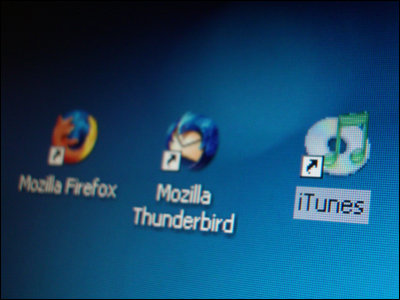The reason why musicians like Taylor Swift asking Congress to review copyright law, and the future prospects

BySumiko Muray
With regard to the illegal copying problem of music on the Internet which has been rapidly expanding, the famous musicians such as Taylor Swift, Paul McCartney, U2 and Aerosmith are taking action to reexamine the copyright law. Behind this is the existence of the "safe harbor provision" established in the "Digital Millennium Copyright Act (DMCA)" established in the United States in 1998.
Why Taylor Swift Is Asking Congress To Update Copyright Laws: All Tech Considered: NPR
http://www.npr.org/sections/alltechconsidered/2016/08/08/487291905/why-taylor-swift-is-asking-congress-to-update-copyright-laws
In June 2016, 186 pairs of artists and a number of music labels etc. jointly submitted a petition seeking amendment of the Digital Millennium Copyright Act. This movement was led by Mr. Irving Eisoff who has been managing numerous big musicians such as Eagles and Steely Dan on one major label such as MCA and Warner Music, and his calls include Brian Beyond generations and genres such as Adams and Beck, Garth Brooks, Cher, Tick Corea, John Bon Jovi, Ono Yoko, Linkin Park, Maroon 5, Ne-Yo, Gwen Stefani, Taylor Swift Many big names have names.
Dear Congress: The Digital Millennium Copyright Act is broken and no longer works for creators.Pic.twitter.com/ u1Gma8rmch
- Irving Azoff (@ irvingazoff)20th June 2016
Also, after submitting the petition, Bruce Springsteen and Bruno Mars have also expressed support and Mr. Eisoff expressed gratitude.
Thanks to Bruce Springsteen and Bruno Mars for being the latest to join us.
- Irving Azoff (@ irvingazoff)June 22, 2016
Among them, Mr. Eisoff points out that there is a "safe harbor provision" established in the DMCA. DMCA is a relatively new law enacted in 1998, but at the time of enactment the YouTube that swept in afterwards, flat-rate streaming services such as Spotify, Pandora, and Apple Music that appeared afterwards were completely In fact it does not exist so much that the law does not catch up with the development of the net afterwards in reality.
The most damaged by the deficiencies of the law that occurred in this way is the creator represented by the musician who submitted this petition. Until then, the music industry had revenues for labels and artists by selling records and CDs, and there was a business model (pros and cons, there were controversies) that the entire record industry would rotate, but first it was on the net With the exchange of files in, and the rise of YouTube and other content free of charge, and becoming spread all over the world instantaneously, the change that the copyright income which should have been originally obtained is not included in the artist's boss It occurred.

ByRobert Bejil
Although DMCA was formulated to prevent infringement of copyright on such Web, petition pointed out that the "safe harbor clause" existing here is a big hindrance I will. This partly excludes the responsibility of service operators such as YouTube and even if there is illegal content on the service, if the contents are deleted promptly upon request, the operator It is assumed that no responsibility is required.
The original purpose for which this provision was established is to eliminate obstacles to new services expected to grow afterwards. If the responsibility of disclosing illegal contents is accepted, the fines of up to 150,000 dollars (about 15 million yen) will be given to the operatorOne for eachIt will be imposed. Although it was the safe harbor clause that was set up to avoid this, it is now that many services infringe the rights of musicians based on this provision in the petition It is contents of pointed out.
In fact, there are a lot of musicians greatly influenced by this change. The influence seems to be remarkable in musicians and labels that have continued their steady activities rather than bigger musicians like Taylor Swift. Mr. Sam Rosenthal who operated the label "Projekt Records" which mainly focuses on electronic music and who has also been active as a musician for more than 30 years is one who is affected.
Shop Projekt: Darkwave | 30 years in the underground

Regarding that situation, Mr. Rosenthal tells us of the painful circumstances, "I constantly save money and look for ways to reduce the scale and I will manage somehow on the market that is narrowing down." In other words, this is nothing but a decline in revenue as a label, Mr. Rosenthal said, "In the 1990s we had 11 employees, but now we only have two contract employees," We are clarifying the tough situation.
Artist produced by Mr. Rosenthal,Steve RoachThe influence is also clearly shown in the activity of. Steve Roach, who had published works with a lot of time and effort, and expenses, was once able to earn enough to continue that style. However, it is now easy to find a site that can be downloaded free of charge by simply searching for a name on the net, even for albums once it was common to reach sales of 50,000 to 60,000 copies.
In response to that situation, it is a huge Internet company like Google that claims that Rosenthal and many other creators are responsible. It is pointed out that the illegal copy file is flooded is that the source of the problem is that Google and others are putting the access to unauthorized files in a state of being the source of the problem, Mr. Rosenthal said "Google % Can be solved, it is also a button, it is, "it indicates the magnitude of its responsibility.
Nonetheless, it is true that Google, YouTube, etc. do not take any measures at all. YouTube provides a mechanism for artists to register their songs with Google's "Content ID" to artists so that artists can receive some of the sales generated from the advertisement display when their content is played It has become possible to do. About this mechanism, Mr. Kathleen Oyama, YouTube's legal counsel, "95% of copyright owners have elected to monetize and receive income."

BySean MacEntee
Since introducing Content ID, YouTube has announced that $ 2 billion (about 200 billion yen) has been paid to copyright holders so far. However, the American Recording Industry Association (RIAA) is contesting this content. According to the survey by the association, YouTube's video views are growing 100% in 2015, while the total amount paid to the music industry has only increased by 17% And that. Although it is unknown how much reproduction of music animation is included in the increase in the number of times of playback, it is not certain to consider that only 17% of music videos are growing by 100% growth as a whole Although it is natural, RIAA argues that "From this figure, Tech companies are getting more profits than artists."
It also points out that tracking by Content ID is restricted to YouTube and excluded from Google search. For this reason, we point out that even if we eliminate unauthorized content, it is the cause of uploading another unauthorized content one after another.
Clearly the fact that law maintenance can not respond to a sudden change in the Internet environment is clearly a situation, it seems to be said that there is no doubt that the business model of the ecosystem existing in the artist and its surroundings does not hold. Once, Taylor Swift against this situation"Music should not be free"It also became a topic to delete all albums from Spotify as. It seems inevitable that attention will be gathered as to what kind of response the legislative body will react to this situation that many content holders stood up for the protection of rights. The US Congress is showing a posture to incorporate opinions from musicians and others, and the outline of the revision proposal is expected to be shown at the end of 2016.
Related Posts:
in Note, Posted by darkhorse_log







